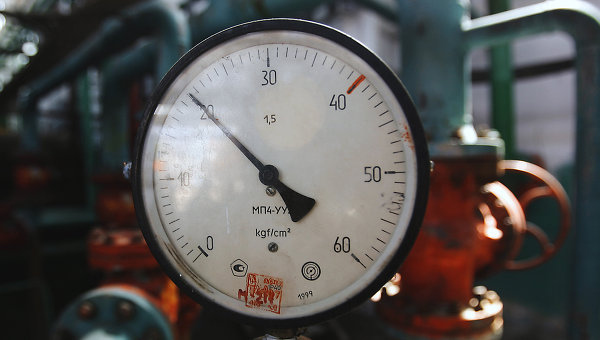SOCAR, Georgia discuss 'dark points'

By Aynur Karimova
Energy-rich Azerbaijan and one of its main gas consumers - Georgia have discussed the problems with the supply of blue fuel to Georgia and the ways to resolve them.
The discussions succeeded the Georgian energy minister's recent loud talks with its two giant gas producing neighbors -- Iran and Russia, in an effort to diversify its gas supplies.
The move gave birth to concerns about reliability of energy partnership between the two South Caucasus nations, thus entailing enough grounds for debates in both countries.
The meeting in Baku on February 4 seems to shed a light on many dark points of the process as Georgian Energy Minister Kakha Kaladze and SOCAR President Rovnaq Abdullayev decided to continue regular meetings and negotiations.
The sides mulled prospects for the development of the Southern Gas Corridor, as well as the progress on the construction of the South Caucasus Pipeline in the territory of Georgia.
Azerbaijan, which is considered by the Georgian officials as a strategic partner, is the priority source of gas supply for Tbilisi.
Since the collapse of the Soviet Union, Georgia enjoyed favorable relations with Azerbaijan that met its increasing gas demand for many years. Even in a very critical period of relationship with Russia, which left Georgians without warm after the 2008 military clashes, Azerbaijan rescued the post Soviet nation and extended a helping hand to it.
Today SOCAR delivers 6 million cubic meters per day in Georgia, which is supposed meet 95 percent of the country's gas consumption. The rest 5 percent of its gas demand Georgia covers though Russian supplies that it receives for "blue fuel" transit to Armenia.
Despite the fact that Azerbaijan enjoys enough natural gas reserves to meet the needs of Georgia and many other European countries for decades, Kaladze and Russian gas giant Gazprom have recently held negotiations which caused a storm of unrest and accusations both in Georgia and Azerbaijan.
Rumors circulating in political circles and society gave birth to ideas that the Georgian government intends to replace cheap and stable Azerbaijani gas with Russian, which is considered much more expensive and less stable.
Kaladze said earlier that Gazprom offers gas to Georgia cheaper than Azerbaijan, adding that if necessary Georgia will balance with Russian supplies a deficit, which SOCAR is unable to refill.
SOCAR, a major gas supplier to Georgia, however, rebuffed any motives about shortage of natural gas, assuring that the company could meet the country's necessary demand for natural gas and would do it further if needed.
But even today, after the Georgian government played such a political game by bargaining with Gazprom, Azerbaijan again rescued Georgia from energy dependence on the Russian "gas needle".
In January, SOCAR and Georgia agreed to increase the volume of gas supplied to Georgia and the company will maximally increase the gas supply up to seven million cubic meters per day.
Daily gas consumption in Georgia exceeded 11 million cubic meters per day and about 2.5 billion cubic meters per year. Currently, SOCAR supplies six million cubic meters per day and it is impossible to get more via the existing pipeline.
Azerbaijan supplies gas to Georgia via Hajigabul-Gardabani pipeline with gas pumping capacity attaining 6.5 million cubic meters per day. The second way carrying gas to Georgian consumers is the Baku-Tbilisi-Erzurum (South Caucasus) Pipeline, through which the gas from the first stage of the Shah Deniz field is supplied to Georgia and a large proportion goes through its territory to Turkey.
By increasing the capacity of these pipelines, SOCAR will be able to meet the increasing demand of Georgia in energy.
The company has several plans in this regard. It plans to fully upgrade the Hajigabul-Gardabani pipeline to increase its capacity.
Also, works on the expansion of the South Caucasus Pipeline as part of the Shah Deniz-2 project have already commenced. These works include the construction of a new pipeline in the territory of Azerbaijan and two new gas compressor stations in Georgia. Expansion of the South Caucasus Pipeline will triple its capacity to more than 20 billion cubic meters a year. That will allow allocating more gas to Georgia.
--
Aynur Karimova is AzerNews’ staff journalist, follow her on Twitter: @Aynur_Karimova
Follow us on Twitter @AzerNewsAz
Here we are to serve you with news right now. It does not cost much, but worth your attention.
Choose to support open, independent, quality journalism and subscribe on a monthly basis.
By subscribing to our online newspaper, you can have full digital access to all news, analysis, and much more.
You can also follow AzerNEWS on Twitter @AzerNewsAz or Facebook @AzerNewsNewspaper
Thank you!
